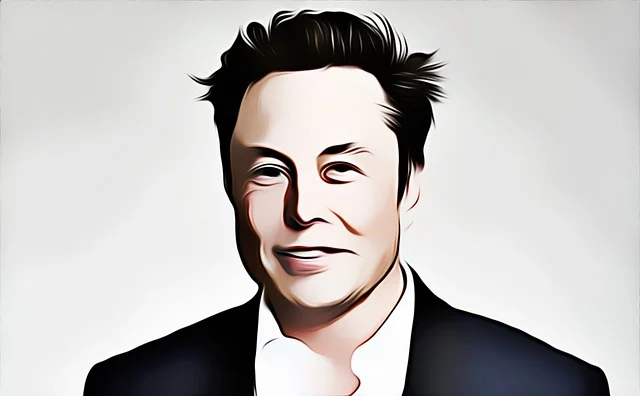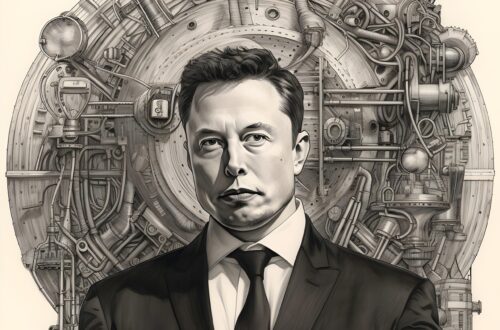Elon Musk is one of the most talked-about minds of our time. From building electric cars to launching rockets, he’s become a symbol of innovation and bold thinking.
But beyond the success, headlines, and memes, many people are curious about the man behind the mission. He’s different — and not just because of his ideas.
One common question that often comes up is: Does Elon Musk have a disability?
Let’s explore that question honestly, respectfully, and in simple terms.

Elon Musk and Asperger’s Syndrome
In May 2021, Elon Musk hosted Saturday Night Live, one of the most famous comedy shows in the U.S. During his opening monologue, he said something unexpected.
“I’m actually making history tonight as the first person with Asperger’s to host SNL.”
It was a short sentence, but it carried weight. It was the first time Musk had publicly shared that he is on the autism spectrum.
Until then, many people didn’t know. Some suspected, but Musk had never addressed it.
This announcement was powerful not just because of what he said, but because of who he is — a global tech icon, opening up about a topic that’s still misunderstood.
What Is Asperger’s Syndrome?
Asperger’s Syndrome is part of a larger group of conditions known as Autism Spectrum Disorder (ASD). People with Asperger’s often face challenges in social communication. They may struggle with reading facial expressions, tone of voice, or social norms.
But they also tend to have strong abilities in focus, memory, logic, and detail.
Many individuals with Asperger’s are deeply passionate about specific subjects. They may speak bluntly, avoid eye contact, or seem disconnected in group conversations. But this doesn’t mean they lack emotion or intelligence.
In fact, many are incredibly gifted — just in different ways.
Asperger’s is not a disease, and it’s not something that needs to be “fixed.” It’s simply a different way of experiencing the world.
Today, the term “Asperger’s” is being used less in official medical diagnosis and replaced with “Autism Spectrum Disorder,” but many still identify with the term.
How It Shapes Musk’s Mindset
Elon Musk has always seemed different. He talks in a unique rhythm. He sometimes pauses in the middle of a thought. His facial expressions don’t always match the tone of what he’s saying.
And most of all, he’s deeply focused.
People close to him have often described him as obsessive — in a good way. When Musk cares about something, he gives it everything. Whether it’s sustainable energy or colonizing Mars, he dives in with full force.
He once said, “I think in terms of probability. I don’t believe in hope. I believe in math.”
This kind of thinking — rational, focused, deeply curious — is often found in people with Asperger’s or autism. They may not be social butterflies, but they shine in logic, systems, and long-term thinking.
Musk doesn’t fit into society’s typical mold of a CEO. But maybe that’s exactly why he’s been able to break boundaries.
His condition hasn’t held him back. If anything, it has helped him build what others only dream about.
Public Response
When Musk shared his diagnosis on live TV, the world listened.
Some people were surprised. Others were moved. Many were inspired.
It wasn’t just about Musk. It was about everyone who saw a bit of themselves in him — the kids who struggle with eye contact, the adults who feel awkward in crowds, the thinkers who stay up all night working on ideas they can’t let go of.
Musk gave them something powerful: representation.
He didn’t announce it as an excuse. He didn’t ask for sympathy. He simply stated it — as a fact of who he is.
And in doing that, he helped break a little more of the stigma around neurodiversity.
Why It Matters
We live in a world that often rewards smooth talkers and social charm. But not everyone fits that mold.
Some people are quiet thinkers. Some speak in facts, not feelings. Some look away when they talk. That doesn’t make them broken. It just makes them different.
When someone as high-profile as Elon Musk opens up about being on the spectrum, it shifts the conversation.
It tells people that success isn’t about fitting in — it’s about standing out.
It tells parents that their child’s diagnosis doesn’t mean limitation. It may mean potential. It tells workers and students that their unique way of thinking can be an asset, not a flaw.
Neurodiversity is not a trend or a buzzword. It’s a reality — and it’s time the world makes room for it.
Conclusion
So, does Elon Musk have a disability?
Yes, he has shared that he has Asperger’s, a form of autism.
But that label doesn’t define him. It doesn’t explain his success, and it doesn’t limit his potential. It’s simply one part of a much bigger picture.
Musk’s story is not about overcoming a condition. It’s about using his unique brain to do things no one else has done.
And that’s the bigger lesson here:
Being different isn’t a disadvantage. It’s a superpower.


